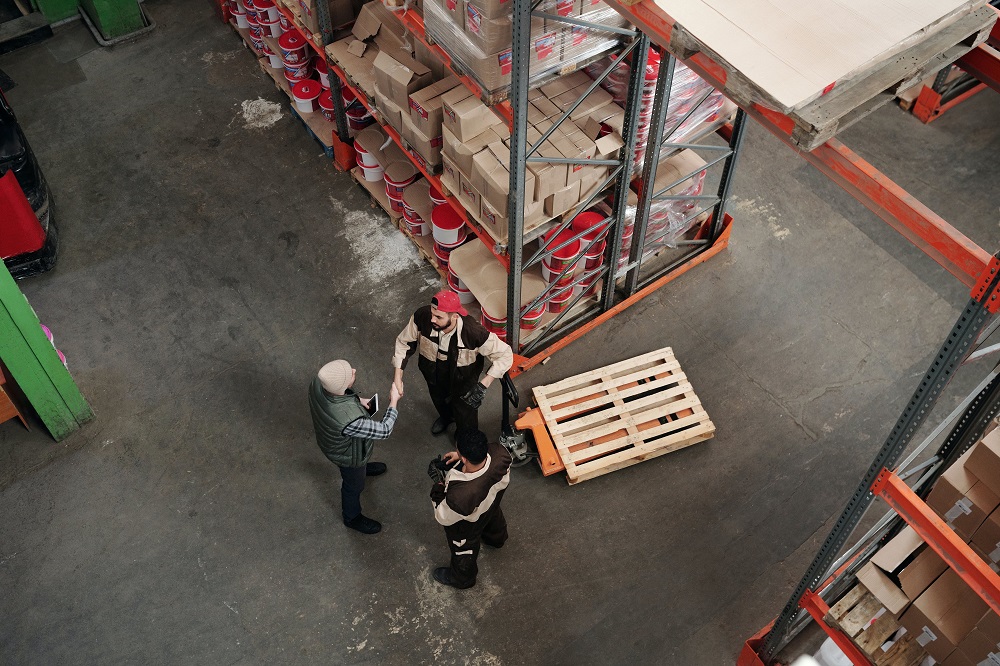Email: info@xpressrailsdelivery.com

In modern-day e-commerce services, customer expectations have skyrocketed, prompting retailers to innovate and redefine their delivery strategies. One such innovation that has gained immense popularity is "Same-Day Delivery." This service promises to bridge the gap between the virtual shopping cart and the doorstep, providing a level of convenience that was once unimaginable. In this article, we will delve into the origins, mechanics, challenges, and impact of same-day delivery, exploring how it has transformed the way we shop online.
Same-day delivery is not a new concept, but its widespread adoption is a relatively recent phenomenon. The roots of this service can be traced back to the dot-com boom of the late 1990s when companies like Kozmo.com and Urbanfetch attempted to offer same-day delivery for a variety of goods. However, these early ventures faced challenges and eventually succumbed to the burst of the dot-com bubble.
The idea, though, persisted and gained momentum in the 2010s, fueled by the rise of e-commerce giants like Amazon, who recognized the potential of providing swift and efficient delivery services. As technology advanced, logistics networks improved, and consumer expectations grew, same-day delivery evolved from an ambitious experiment to a standard offering from many major retailers.
Same-day delivery hinges on real-time inventory management. Retailers need to have an accurate and up-to-date view of their stock to ensure that items listed as available for same-day delivery are indeed in stock and ready to be dispatched.
To meet tight delivery windows, efficient order processing is essential. Orders need to be quickly picked, packed, and dispatched from a nearby fulfillment center or store.
Robust logistics networks are the backbone of same-day delivery. Retailers often partner with third-party logistics providers or develop their own sophisticated networks to ensure timely and reliable delivery.
The last mile, the final leg of the delivery journey from the distribution center to the customer's doorstep, is often the most challenging. Companies employ various strategies, including drones, autonomous vehicles, and crowdsourced delivery services, to navigate this critical stage efficiently.
The adoption of same-day delivery has reshaped the e-commerce landscape in several ways:
Offering same-day delivery provides a competitive edge in the crowded e-commerce market. Consumers are more likely to choose a retailer that can deliver their purchases swiftly, especially when faced with time-sensitive needs.
As more retailers embrace same-day delivery, consumer expectations have shifted. What was once considered a premium service is now a standard expectation, influencing brand loyalty and repeat business.
Same-day delivery has been particularly successful in urban areas where population density allows for more cost-effective delivery routes. Companies have tailored their strategies to cater to the unique challenges and opportunities presented by city-centric models.
The immediacy of same-day delivery has a profound impact on consumer behavior. It encourages impulse buying, as customers are more likely to make quick purchasing decisions when they know the product will arrive on the same day.
While same-day delivery offers numerous benefits, it comes with its set of challenges:
Implementing and maintaining a same-day delivery infrastructure can be costly. Balancing the additional expenses with the need for profitability remains a significant challenge for retailers.
Navigating the last mile poses logistical challenges, especially in densely populated urban areas. Companies are investing in innovative solutions, including autonomous vehicles and drones, to overcome these challenges.
As same-day delivery becomes more common, customer expectations continue to rise. Meeting these expectations consistently can be demanding, requiring retailers to constantly optimize their processes and logistics.
The urgency of same-day delivery often results in expedited shipping methods that may have a higher environmental impact. Retailers are under increasing pressure to balance speed with sustainability, prompting the exploration of eco-friendly delivery options.
As technology continues to advance, the future of same-day delivery holds exciting possibilities:
Companies are actively exploring the use of drones and autonomous vehicles for same-day delivery. These technologies have the potential to revolutionize the last-mile delivery process, making it faster and more efficient.
Predictive analytics can enhance inventory management, allowing retailers to anticipate demand and optimize stock levels. This, in turn, contributes to more accurate same-day delivery promises.
The gig economy has become an integral part of same-day delivery, with companies leveraging freelance drivers for flexible and scalable last-mile solutions. Collaborations with gig workers are expected to increase in the coming years.
To address environmental concerns, many retailers are focusing on sustainable delivery practices. This includes the use of electric vehicles, eco-friendly packaging, and offsetting carbon emissions.
Photo Gallery
Same-day delivery has become a transformative force in the world of e-commerce, reshaping customer expectations and challenging retailers to evolve their logistics strategies. As technology continues to advance, the future promises even greater efficiency and sustainability in same-day delivery. However, striking a balance between speed, cost, and environmental impact remains a critical challenge for the industry. Regardless, there's no denying that same-day delivery has firmly established itself as a key driver of customer satisfaction and loyalty in the dynamic landscape of online retail.
© 2025 Rails Express. All rights reserved.
Code of Conduct | Return Policy | Privacy Policy | Terms of Service